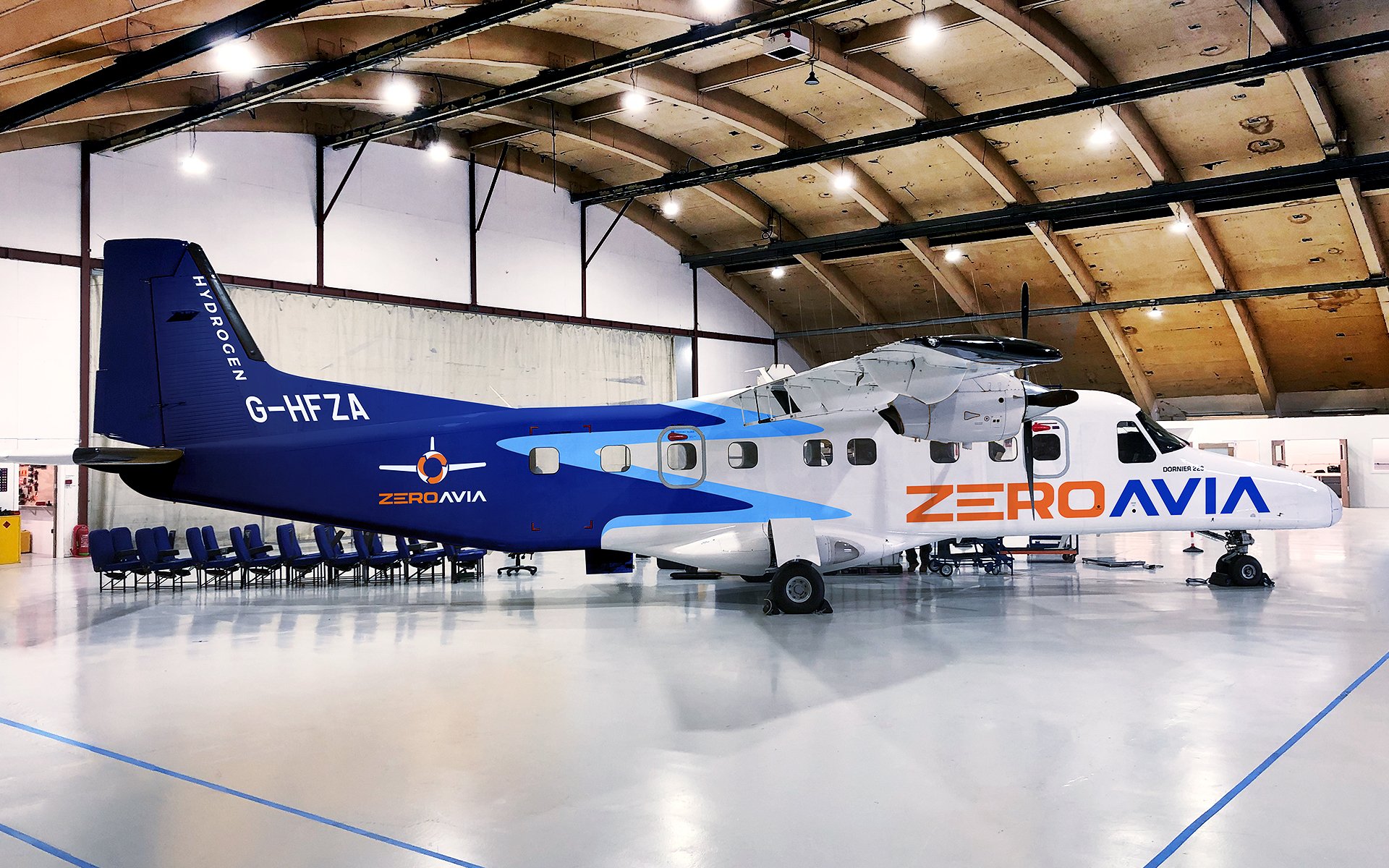Click Here to View This Page on Production Frontend
Click Here to Export Node Content
Click Here to View Printer-Friendly Version (Raw Backend)
Note: front-end display has links to styled print versions.
Content Node ID: 419276
Hydrogen-electric commercial air service could start between London and Rotterdam in 2024, based on a partnership announced this week involving propulsion system developer ZeroAvia, the Royal Schiphol Group, the Rotterdam The Hague Airport, and the airport's RTHI innovation foundation. The partners say they are in advanced talks with prospective airlines to operate the flights with the 19-seat Dornier 228 twin turboprop that ZeroAvia is using as a technology demonstrator.
ZeroAvia is already working to develop a 600-kW hydrogen-fuel-cell-based powertrain that could be used for multiple 19-seater aircraft. Having secured two Do-228 test aircraft, it intends to start flight testing the first of these as part of its HyFlyer II program later this year. One of the test aircraft has been provided by UK-based regional carrier Aurigny Air.
HyFlyer II's objective is to support a range of up to around 500 miles, which is significantly farther than the 200-mile London to Rotterdam route. During the earlier HyFlyer I project, which used a six-seat Piper Malibu aircraft, ZeroAvia said that it achieved cruise flight fueled entirely by hydrogen-electric power, with batteries used only for supplementary power during takeoff. The company explained to FutureFlight that work on the 600 kW system will be conducted in stages, starting with a hybrid hydrogen fuel cell and battery combination this year, and then progressing to hydrogen-only flight in mid-2022.
ZeroAvia recently established a company in the Netherlands, which it says will support its efforts to develop commercial applications for its propulsion technology in the country and throughout the 27 European Union (EU) member states. It says the new partnership will collaborate on regulation, testing, and adoption of technology for commercial operations.
The California-based venture also has a subsidiary in the UK, which has allowed it to benefit from financial support provided by the UK-government-backed Aerospace Technology Institute. That company, which is based at Cotswold Airport in the west of England, now has more than 50 employees with more hiring anticipated, as it continues certification work with the UK Civil Aviation Authority.
“Boarding a zero-emission flight from Rotterdam to London is only the beginning of green aviation, and that will only be made possible by pioneering and promoting innovation in the sector,” said Rotterdam The Hague Airport CEO Ron Louwerse. “With the Netherlands as the testing ground for aviation, we strengthen our competitive position, knowledge base, and business climate.”
In the longer term, ZeroAvia intends to be able to convert larger airliners, with 50 to 100 seats, to hydrogen propulsion. This would require powertrains rated between 2 and 5 MW.
The original Dornier 228 was in production until 1998 and was powered by a pair of Garrett TPE331 turboprops. In 2009, Ruag started working on a so-called New Generation version of the aircraft in partnership with Hindustan Aeronautics, before selling the program to General Atomics. More recently, the Bavarian state government has been funding a program led by German aerospace research group DLR and MTU Aero Engines to develop a hybrid-electric version.
